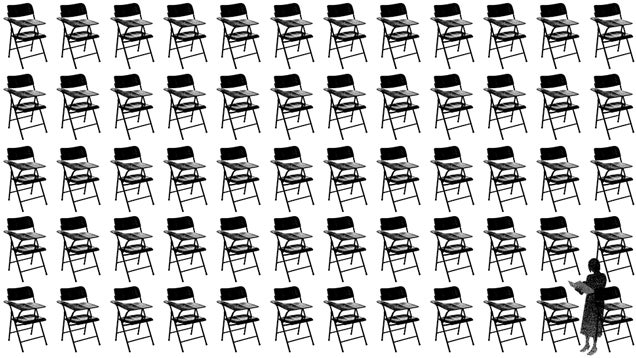Thompson: Reformers to Teachers - Please Stop Thinking About Tomorrow

Teachers have to think ahead. What questions do I ask, in what order? How do I pace instruction for seniors with 5th grade skills so they can master college readiness concepts? What classroom disruption should I ignore? What will happen if/when I make an issue of different sorts of misbehavior?
I've long had great success in teaching students to plan their work and work their plans. I've failed consistently, however, in understanding why reformers never look before they leap. They seem to just dictate without anticipating the predictable results of their mandates.
Now, the anti-Opt Out soundbite is that teachers should relax, don't worry about what is in store for us in the near future. High stakes Common Core testing has barely begun to release its fury and, according to reformers, we should give it a chance because we might dodge a worst case scenario.
The Hechinger Report Lillian Mongeau, Emmanuel Felton, and Sarah Butrymowiez, in Stakes for "High-Stakes" Tests Are Actually Pretty Low, report that few students are currently subject to high-stakes Common Core tests, and most teachers are not yet subject to the sanctions that have already been codified into law. Their graphic shows that only 11 states are already using test scores for teacher evaluations. However, their interactive graphic shows that all but eight have plans to do so.
Mongeau et. al report that the Council of Chief State School Officers' Chris Minnich hopes that teachers "can continue to be part of an ongoing conversation about the best way to use measures of student learning in evaluations." But, that gets the issue backwards. Why wasn't there a real discussion about whether it was good or bad policy to include test score growth estimates to sanction individual teachers? Why were teachers ignored when non-educators decided how we should be evaluated?
Understandably, no information on Oklahoma was provided by Hechinger. We delayed the retention of 3rd graders and outlawed high stakes Common Core End of Instruction tests, so no students have been hurt in the grand experiment that Arne Duncan coerced us into. But, as the Oklahoma Policy Institute's Gene Perry explains, in Will This Be Oklahoma's Next Education Controversy?, value-added teacher evaluations will prompt a high-stakes debate. Perry concludes:
As Oklahoma already struggles with a dire teacher shortage, we can’t afford to reduce teachers’ morale even more by evaluating their work using an arbitrary and unreliable formula. Test scores may be one piece of evidence used to evaluate educators, but over-reliance on the formula could drive even some of our best teachers away from the profession.
When I initially supported Common Core, it never occurred to me that they would attach stakes to Common Core tests. I assumed that Common Core was an effort to get us out of the bubble-in test and punish disaster. Why would anyone attempt to deny high school diplomas or retain public school students because they couldn't pass a college readiness test?
This spring, only three states will subject students to high stakes Common Core tests. But, how many would have done so if it were not for the backlash by parents, students, and teachers?
And, don't get me started about the 90% drop in the numbers of GEDs earned since those tests This Week In Education: Thompson: Reformers to Teachers - Please Stop Thinking About Tomorrow:
